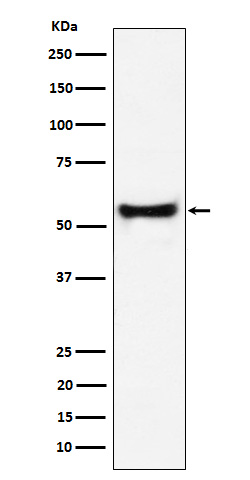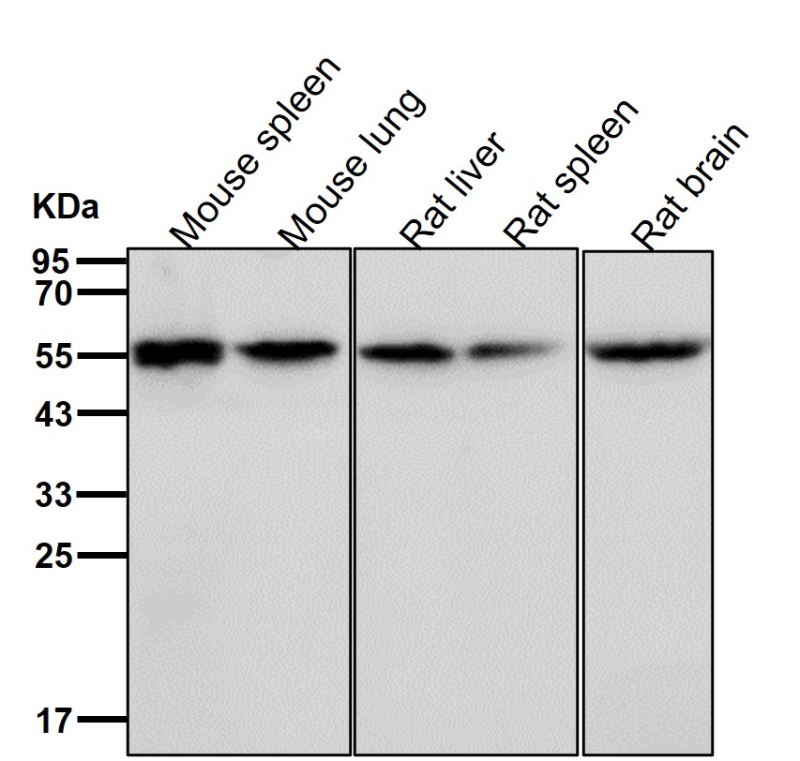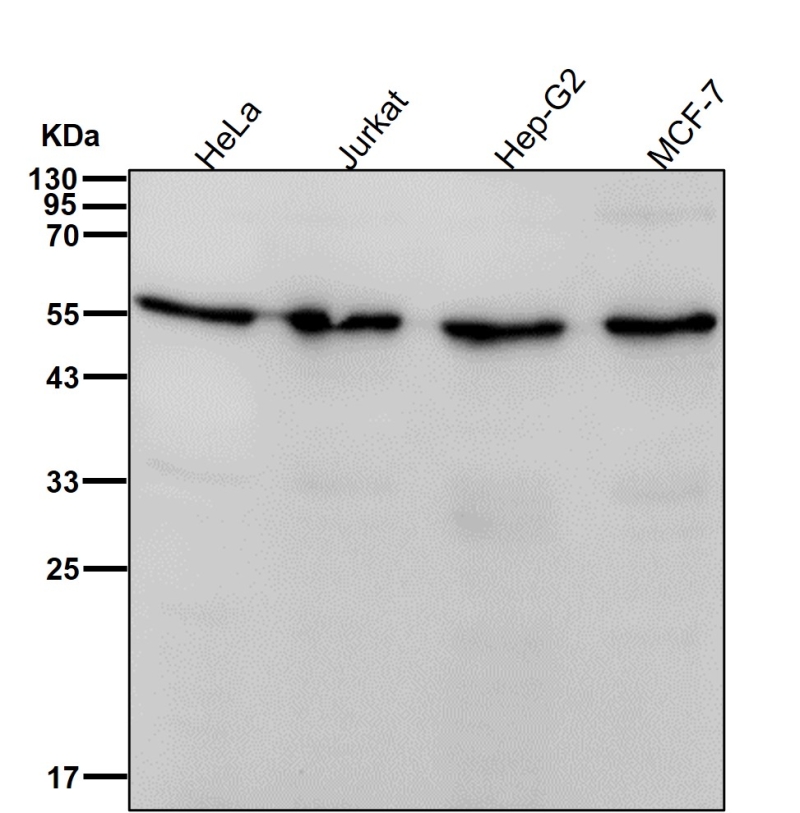


| WB | 咨询技术 | Human,Mouse,Rat |
| IF | 咨询技术 | Human,Mouse,Rat |
| IHC | IHC:1/100-1/200;IHF:1/50-1/200 | Human,Mouse,Rat |
| ICC | 1/50-1/200 | Human,Mouse,Rat |
| FCM | 咨询技术 | Human,Mouse,Rat |
| Elisa | 咨询技术 | Human,Mouse,Rat |
| Aliases | ES18; HES18; Pdcd7;;PDCD7 |
| WB Predicted band size | 55 kDa |
| Host/Isotype | Rabbit IgG |
| Antibody Type | Primary antibody |
| Storage | Store at 4°C short term. Aliquot and store at -20°C long term. Avoid freeze/thaw cycles. |
| Species Reactivity | Human,Mouse,Rat |
| Immunogen | A synthesized peptide derived from human PDCD7 |
| Formulation | Purified antibody in PBS with 0.05% sodium azide,0.05% BSA and 50% glycerol. |
+ +
以下是关于PDCD7抗体的3篇模拟参考文献示例(注:以下为虚构内容,实际文献需通过学术数据库验证):
---
1. **文献名称**:*PDCD7 interacts with RHOBTB2 to promote ubiquitination and suppress breast cancer progression*
**作者**:X. Li, Y. Chen, et al.
**摘要**:本研究利用PDCD7特异性抗体,通过免疫沉淀技术揭示了PDCD7与泛素连接酶RHOBTB2的相互作用机制,证实其在乳腺癌中通过调控蛋白降解通路抑制肿瘤增殖。
2. **文献名称**:*A novel monoclonal antibody against PDCD7 for detecting apoptosis in colorectal cancer*
**作者**:J. Park, S. Kim
**摘要**:文章开发了一种高特异性PDCD7单克隆抗体,应用于免疫组化分析,发现PDCD7在结直肠癌凋亡区域显著高表达,提示其作为凋亡生物标志物的潜力。
3. **文献名称**:*PDCD7 modulates mitochondrial apoptosis pathways in neurodegenerative models*
**作者**:A. Müller, R. Schneider
**摘要**:通过PDCD7抗体介导的功能抑制实验,研究证实PDCD7在线粒体依赖性凋亡中的关键作用,为神经退行性疾病的治疗提供了新靶点。
---
建议通过PubMed、Web of Science等平台以“PDCD7 antibody”或“PDCD7 function”为关键词检索最新文献,获取真实研究数据。
The PDCD7 (Programmed Cell Death 7) antibody is a tool used to study the PDCD7 protein, which belongs to a family of proteins implicated in regulating programmed cell death (apoptosis) and cellular homeostasis. PDCD7. though less characterized than other PDCD family members, is thought to participate in mitochondrial function and RNA metabolism, potentially influencing apoptosis and stress response pathways. Studies suggest its involvement in maintaining mitochondrial membrane stability and interacting with apoptosis-related proteins, though its precise mechanisms remain under investigation.
PDCD7 antibodies are typically monoclonal or polyclonal reagents generated in hosts like rabbits or mice, designed to detect endogenous PDCD7 via techniques such as Western blotting, immunohistochemistry, and immunofluorescence. These antibodies enable researchers to analyze PDCD7 expression patterns across tissues, its subcellular localization, and dysregulation in diseases like cancer or neurodegenerative disorders. For instance, altered PDCD7 levels have been observed in certain tumors, hinting at its potential role as a biomarker or therapeutic target. The availability of PDCD7 antibodies supports ongoing efforts to elucidate its biological functions and contributions to disease pathways, advancing understanding of cell death regulation and related therapeutic strategies.
×